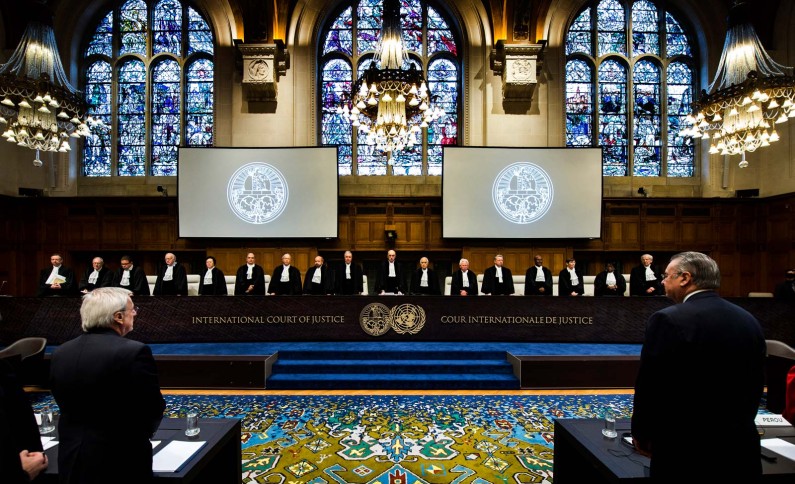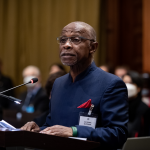
The International Court of Justice has informed the Guyana Government that it will hear oral arguments on its jurisdiction in the border row case against Venezuela.
Oral arguments will take place in The Hague from the 23rd to the 27th March next year.
Guyana moved to the Court for a final settlement on the border controversy following the advice of the Secretary-General of the United Nations.
Venezuela has said the ICJ has no jurisdiction to hear and determine the matter.
The Government of Guyana has welcomed the announcement of the date for the oral hearings.
According to a statement from the Ministry of Foreign Affairs, the hearing will determine whether the Court has jurisdiction over the case filed by Guyana on March 29, 2018.
Guyana is seeking to obtain a final and binding judgment from the Court that the 1899 Arbitral Award, which established the location of the land boundary between then-British Guiana and Venezuela, remains valid and binding, and that Guyana’s Essequibo region belongs to Guyana, and not Venezuela.
Venezuela has claimed, in a letter to the Court, that the Secretary-General exceeded his authority under the Geneva Agreement, and that the Court therefore lacks jurisdiction to adjudicate Guyana’s lawsuit.
Venezuela has indicated that it will not participate in the proceedings.
The Foreign Affairs Ministry said under well-established judicial precedent, the Court will proceed to decide if it has jurisdiction over Guyana’s claims, irrespective of whether or not Venezuela participates in the proceedings.
If it decides that it has jurisdiction, the Court will proceed to rule on the merits of those claims, and decide whether the validity of the 1899 Arbitral Award and the border between the two States should be confirmed.
Under the United Nations Charter and the Court’s own rules, its final judgments both on jurisdiction and the merits will be legally binding on Guyana and Venezuela, whether or not Venezuela participates in the proceedings.
Guyana continues to express the hope that Venezuela will participate, to indicate respect for the Court and the international rule of law, the peaceful settlement of disputes, and the promotion of friendly relations between both States.
The Government of Guyana said it welcomes the prospect of a final and binding decision by the Court that will definitively resolve the longstanding controversy, and allow Guyana and Venezuela to proceed to develop excellent and close relations as neighbouring states.

















You must be logged in to post a comment Login